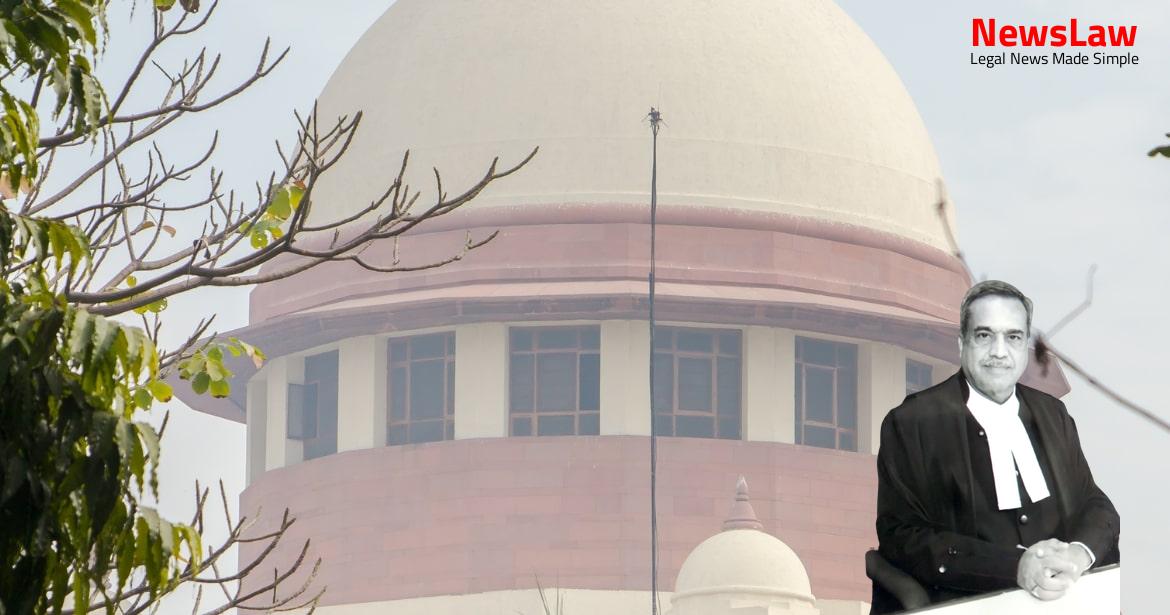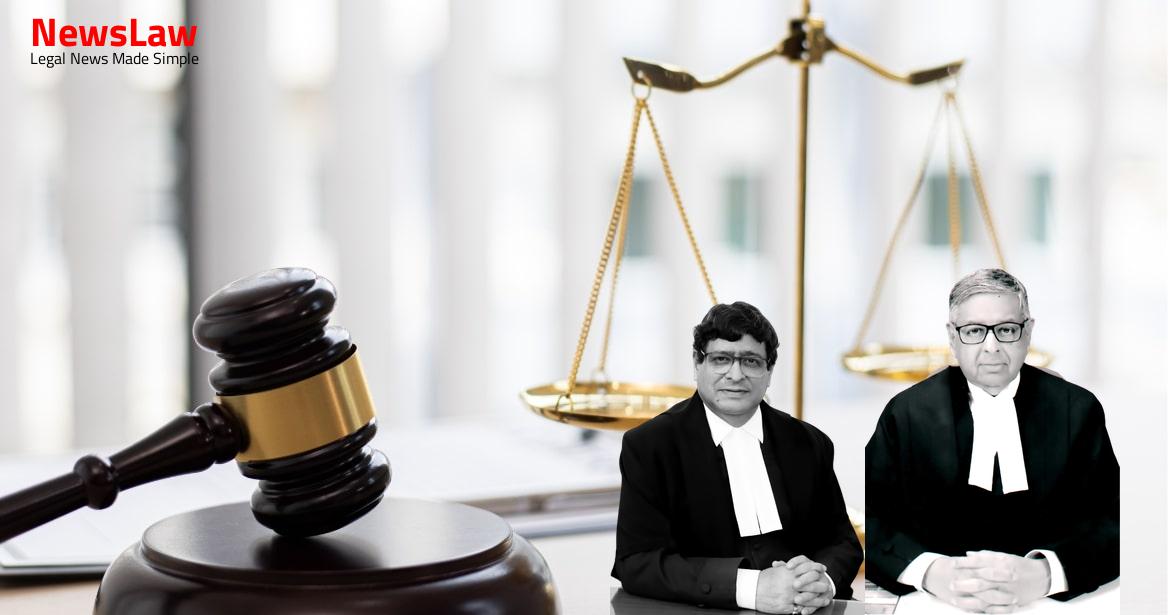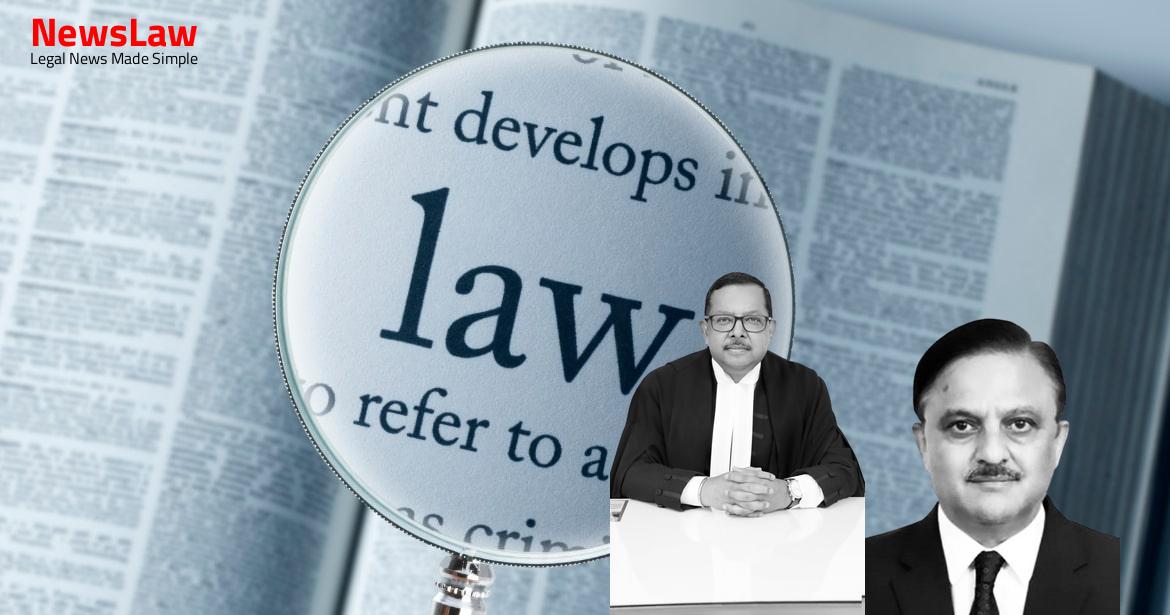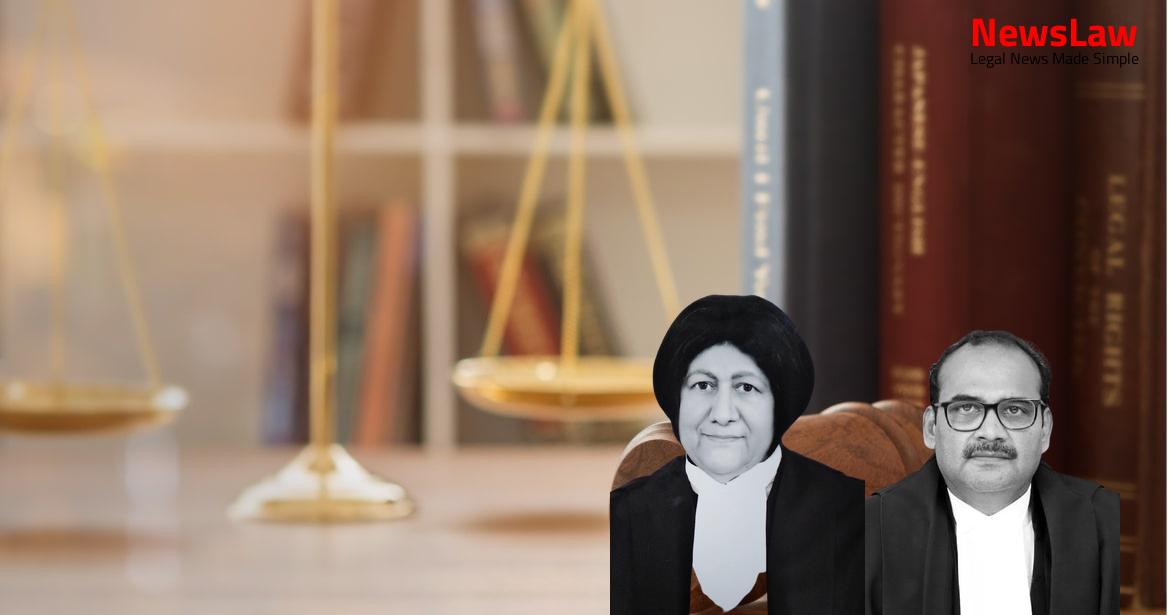Delve into the detailed legal analysis conducted by the court in a recent case involving the quashing of a chargesheet in a criminal matter. The court’s examination of the evidence, application of legal principles, and jurisdictional considerations provide valuable insights into the complexities of the legal system.
Facts
- The High Court quashed and set aside the entire criminal proceedings against respondent no.1 – original accused no.2 (A2) in P.R.C. No.250 of 2019
- The judgment and order dated 25.08.2020 passed by the High Court of Judicature at Madras in Criminal OP No 1443 of 2020 was the impugned decision
- The action was taken under Section 482 Cr.P.C. by the High Court
- The original complainant, wife of the deceased, has filed the present appeal against the quashing of the chargesheet by the High Court.
- An FIR was lodged against the respondent and another individual for various offenses including murder and cheating.
- The complainant had given money to the accused based on the promise of arranging a job, leading to her husband’s death.
- The dying declaration of the complainant recorded in the hospital implicated the accused in providing a substance leading to her husband’s death.
- The accused had approached the High Court for quashing the chargesheet, which was granted.
Also Read: Judicial Review of Delayed Writ Petition
Arguments
- The High Court exceeded its jurisdiction in quashing the chargesheet and entire criminal proceedings against respondent no.1 (A2) under Section 482 Cr.P.C.
- The material and evidence on record show that respondent no.1 (A2) aided and instigated the offense committed by A1.
- Confessional statement and recovery of money from the house of respondent no.1 (A2) support the charges against her.
- The High Court ignored crucial evidence collected during the investigation, leading to an erroneous decision to quash the chargesheet.
- Allegations against A2 include introducing A1 to the victims, but no evidence places her at the scene of the crime when the offense was committed.
- The so-called recovery of money and call details between A1 and A2 cannot be deemed sufficient evidence against A2.
- The High Court’s decision to quash the chargesheet for offenses under Sections 420, 302 r/w 109 IPC against respondent no.1 (A2) was deemed improper and beyond its jurisdiction.
- The High Court did not commit any error in quashing the chargesheet/criminal proceedings against accused no.2
- The High Court exercised its powers under Section 482 Cr.P.C. appropriately
- There is no evidence against accused no.2 to attract the offence under Section 109 IPC
- The appeal should be dismissed based on the above submissions
Also Read: Ownership Dispute: Legal Analysis on Admission and Decree
Analysis
- The High Court is not required to appreciate the evidence on record or consider the allegations on merits at the stage of application under Section 482 Cr.P.C.
- Strong suspicion exists against respondent no.1 – A2 based on sufficient material on record.
- A2 was in touch with the deceased and the complainant, introducing A1 to them.
- The High Court erred in prematurely entering into the evaluation of evidence and considering the likelihood of conviction.
- Recovery of Rs. 1 lakh 20 thousand from A2’s house is a matter of evidence for trial.
- Important evidence in the form of call details between A1 & A2 was collected during the investigation.
- A2 has been chargesheeted for offenses under Sections 420, 302 r/w 109 IPC based on prima facie evidence.
- Quashing the chargesheet against A2 was unjustified as vital evidence emerged during investigation.
- The High Court must consider principles outlined in relevant court decisions while exercising jurisdiction under Section 482 Cr.P.C. or at the stage of framing charges.
- Material must be evaluated to determine if there is a ground for ‘presuming’ the accused committed the offense.
- A2’s alleged involvement in promising employment to the deceased in exchange for payment is noted.
- Confessional statement of A2 is inadmissible as evidence.
- Recovery of Rs. 1 lakh 20 thousand from A2’s house during investigation is significant.
- The High Court was not conducting a trial or acting as an appellate court in this matter.
- The High Court should not have quashed the chargesheet against respondent no.1
- The respondent no.1 should not have been considered as original accused no.2
Also Read: Interpretation of Statutory Limitation under Section 263(2)
Decision
- The appeal succeeded and the impugned judgment and order passed by the High Court were quashed.
- The chargesheet/criminal proceedings in P.R. C. No. 250 of 2019 were set aside for the offences under Sections 420, 302 r/w 109 IPC against respondent no.1.
- The learned Magistrate was directed to proceed further with the case in accordance with the law.
- Observations made by the Court were confined to the application under Section 482 Cr.P.C., and the trial was to proceed based on its own merits and evidence.
Case Title: SARANYA Vs. BHARATHI (2021 INSC 416)
Case Number: Crl.A. No.-000873-000873 / 2021



